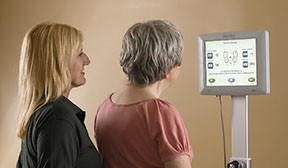Preventing Falls in Older Adults

Fall has arrived, and while we welcome this kind of fall, the kind that involves injuries to seniors is not desirable. According to the National Council on Aging, falls are the leading cause of both fatal and non-fatal injuries for older Americans.
Fall Facts
Here are a few facts as reported by the Centers for Disease Control and Prevention:
- One in four Americans over the age of 65 experiences a fall each year.
- Every 11 seconds, an older adult is treated in the emergency room for a fall; every 19 minutes, an older adult dies from a fall.
- Falls result in more than 2.8 million injuries treated in emergency departments annually.
- More than 27,000 people will die each year after experiencing a fall; over 800,000 hospitalizations will occur.
The financial cost of these fall-related injuries topped $50 billion in 2015. As the demographic of older Americans grows, that cost is expected to be nearing $70 billion by 2020. The bulk of these costs was paid by Medicare and Medicaid.
How to Prevent Falls
- Get stronger! Be proactive and improve your body’s balance, core stability and strength. Read about recent blog about yoga for seniors for ideas on ways to do this.
- Discuss your fall risk with your healthcare provider. You may think you are not susceptible to a fall, but truly no one is immune to the possibility of falling. Your doctor can evaluate your risk level for falling. You may not be cognizant of some of the risk factors.
- Get your hearing and your vision checked. A recent study conducted by Johns Hopkins found a correlation between hearing loss and falls a person experienced. The greater the hearing loss, the more prone to falling a person can become.
- Check to ensure any prescriptions (prescribed or over the counter) could be causing side effects that might lead to a fall (lightheadedness, dizziness, vertigo, etc.).
- Remove obstacles from your home that could lead to a fall, such as rugs, cords or furniture that may be blocking your path. Install grab bars and other aids in the bathroom to help you stay on your feet.
Fear of Falling
The fear of falling can be as crippling as actually taking a tumble. The emotional fear that a person might fall can be overwhelming and they may begin to stay at home and indoors. This can lead to withdrawing from beloved activities, not seeing friends and family and even depression and anxiety. A senior who lives alone can become so afraid they might fall and not have anyone to help them that they experience feelings of helplessness. Physical decline can be accelerated due to the halting of movement that is important for overall health.
